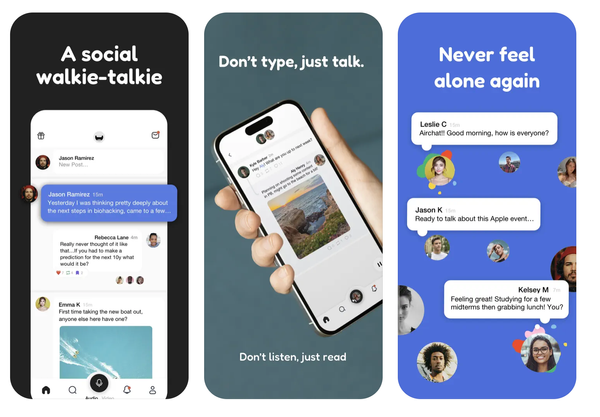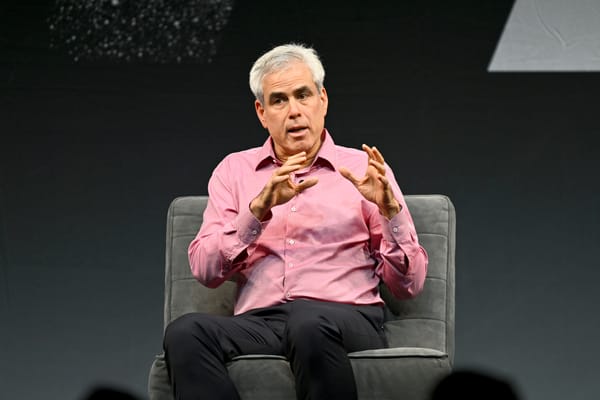All the most popular posts on Facebook are plagiarized
Being original on Facebook doesn't pay, according to its own data

The conventional wisdom around the “widely viewed content report” that Facebook released last week is that it obscured more than it revealed. The company’s effort to demonstrate that most users do not regularly see divisive news stories in their feeds received widespread criticism, including here, for offering only the highest-level view of the data possible. The most-shared domain on Facebook is YouTube.com? Great, thanks.
But in the days since I last wrote about the report, I’ve spent more time looking at the data Facebook actually did share. (I was guided by some independent researchers who flagged some of these findings to me but did not want to share their identities; I independently verified everything below.) And while it’s true that it tells us little about hot-button issues like the spread of COVID-19 misinformation or the rise of vaccine hesitancy, the report arguably reveals something just as damning: almost all of the most-viewed posts on Facebook over the past quarter were effectively plagiarized from elsewhere. And some of the same audience-building tactics that allowed Russian interference to flourish on the platform in 2016 continue to be effective.
Today, I want to look at two aspects of the data. First, we’ll look at the most-viewed posts on Facebook over the past quarter to see where they originally came from. Second, we’ll look at one of the most popular links on the platform, which may be running a grift on US military veterans.
I.
It’s hard to come up with a good idea for a viral social media post. Which is probably why most of Facebook’s most popular pages spent the last quarter stealing their ideas from elsewhere.
Facebook’s report details the top 20 most widely viewed posts on the network over the past three months. One of the posts was deleted before Facebook published it. Of the remaining 19, though, only four appear to have been original. The remaining 15 had been published in at least one other place first, and were then re-uploaded to Facebook, sometimes with small changes.
Take the No. 1 post in the report, a meme from the motivational speaker and author Gaur Gopal Das. It’s a jumble of letters and words underneath the message “First three words u see are your reality.” It was originally posted more than a year ago, but continues to rack up views: 80.6 million people have seen it so far.
But it wasn’t original to Das. The meme had been posted to Twitter two weeks earlier by the Ghanaian rapper M.anifest. (It may not have been original to M.anifest, either; the image he posted looks fairly distressed, as if it had been copied and re-copied many times. His tweet is the earliest instance of the meme I could find using Google’s reverse-image search, though.)
How about No. 2? In April musician Ace Gutta posted an image reading “I’m old But I look Young Challenge. Drop a pic 30 and up,” along with a link to his Instagram. More than 61 million people saw it, and 5 million replied. But other people had been issuing this “challenge” all over Facebook in 2020, according to a search I did — here’s a post from one user last October. Here’s another one from March.
Next up: in May, the Facebook page for Texas’ hottest morning show, Daytime with Kimberly & Esteban, dared to ask: “What is something you will never eat, no matter how hungry you get?” 58.6 million people were confronted with this question, and 2.7 million of them replied. Versions of this question have been floating around Twitter and meme pages for years.
No. 5 found “wife, mom, author” Christina Watts starting a fight over whether sugar belongs on spaghetti that was visited upon 58.6 million souls; the comedian Steve Harvey had tweeted the same question less than a week earlier.
It takes until the sixth post until we find something vaguely original — a message from President Biden that got 52.8 million views. He appears to have cross-posted the message from Twitter, just like his predecessor did.
It more or less goes on like this for the rest of the top 20: lots of viral questions stolen from Reddit, Quora, Twitter or other sites, rewarded with huge engagement on Facebook.
Maybe at this point you’re rolling your eyes. So some dumb meme pages stole memes from other dumb meme pages — what’s the big deal? And I’ll allow that the Facebook pages of Texas-based daytime talk shows typically do not observe the zero-tolerance policy on plagiarism that journalists do.
Moreover, Facebook has long been home to reappropriated content, from the freebooting scandal during 2017’s pivot to video to the more recent phenomenon of Instagram’s Reels being flooded with videos bearing TikTok watermarks.
But this kind of dumb, cheap growth hacking should sound familiar to anyone who paid even passing attention to the 2016 election. Russia’s infamous Internet Research Agency commissioned a troll army to build up big followings on innocuous-seeming Facebook pages using a wide variety of engagement bait, then gradually shifted those pages to begin sharing more divisive political memes.
That’s all much harder to do now, thanks to a variety of measures Facebook has taken to make it more difficult for people to disguise their identities or countries of origin. The company now routinely removes networks of pages where the creators’ identities are suspect. And it’s worth saying that in the most recent election, inauthentic behavior of the 2016 variety did not play a significant role.
Most importantly, Facebook now has a policy against “abusive audience building” — switching topics and repeatedly changing a page’s name for the purpose of growing a following.
But it seems notable that for domestic actors, the tactics not only work, but remain the most effective way to reach a large audience five years later. Steal some questions that went viral somewhere else, spam them on your page, and presto: you’re one of the most-viewed links for the entire quarter on the world’s biggest social network.
I talked about all this with the company today, and it said that re-posting content from elsewhere does not violate its policies. (Among other things, it would likely be extremely difficult to police.) In order for Facebook to remove posts like these, the company said, there has to be something deceptive about them: lying about who posted them, or where they live, for example.
Facebook has come a long way in removing inauthentic people from the platform. But what I would consider inauthentic content dominates the most-viewed posts on the site. In the short term, these posts may prove to be less harmful than the COVID misinformation and Big Lie rabble-rousing that we get worked up about more often.
Over the long term, though, they would seem to provide a motivated adversary with a broad attack surface.
II.
There’s something else in the data that bothers me — something that hints of some of the darker forces in the ecosystem. The plagiarists who dominate Facebook’s top 20 links are likely doing it primarily for clout and ill-gotten audience growth. But some of the other characters here appear to have more direct monetary incentives.
Ever since Facebook’s report came out, commentators have noted the large number of spam networks present in the list of most viewed links. (This is separate from the list of most viewed posts described above; the links list includes cumulative views for a link across Facebook; the former list counts only views for an individual post.) Most memorably, the researcher Ethan Zuckerman explored the origins of the No. 9 link on Facebook’s list, a speaking agency of former Green Bay Packers players that got 87 million views thanks to players adding the link to low-effort meme posts.
My eyes were drawn to the 15th-most viewed link, which leads to an online storefront selling a Vietnam memorial flag. (“Normally, $24.00. But because you are a hero, all you need to pay is $20.00 and you can have a collectors Item.”)
The links are promoted via an endless series of memes posted every few hours to Facebook pages marketed to veterans. You’ll find it on the “Iraq and Afghanistan Veterans” page and, more logically, the Vietnam Veterans page. Elsewhere, the Desert Storm Veterans page links to the same online storefront, selling a Desert Storm memorial flag.
Together, they have more than 350,000 followers. And their link got 37 million views over three months.
Who runs these pages? Are they veterans? The pages bear no clues, and the administrators did not respond to messages from me today. (One of them did see my message, though, according to Facebook Messenger.)
But they looked familiar to Kristofer Goldsmith, who has spent years investigating the way bad actors will pose as members of military communities to run various grifts and influence operations. In fact, he said, he had previously reported the network to Facebook. Among other things, he said, networks like this often steal plagiarize memes from authentic military communities to hawk merchandise.
“It’s profiting off the death and suffering of service members,” said Goldsmith, a former investigator for Vietnam Veterans of America who now runs an open-source intelligence service named Sparverius. (It’s named after the American kestrel — “the smallest predatory bird in the Western hemisphere,” Goldsmith told me.)
Goldsmith said that Facebook had been slow to intervene in cases where page owners misrepresented themselves as veterans in order to sell merchandise to members of military families. “
As someone who has been trying to help Facebook understand that this is harmful to my community for three, going on four years now, I’m beyond upset that I still have to do this,” he said.
Facebook told me it would look into the network. It noted that it is often difficult to discern a page owner’s intent from the content posted, and in the absence of evidence of deceptive content, it can be hesitant to act. People have different opinions on what counts as “spam”; the dividing line isn’t always clear.
At the same time, the network of pages here seems purpose-built to evade spam detection. By posting heart-rending memes targeted at service members and their families, they’ve made it much less likely that the memes will get reported as spam, even as they post the link to the same cheap flag every single hour.
Whatever the case, Facebook’s list of popular posts and links tell the same story: the way to succeed on the platform is by copying someone else’s idea.
And if you’ve studied the history of Facebook, perhaps that won’t come as much of a surprise.
Update, 5:19 p.m. Added a note to the top to reflect that some of these findings had been flagged to me by independent researchers. They initially weren’t sure they wanted me to mention that, but decided to let me after I published.
The Ratio
Today in news that could affect public perception of the big tech companies.
⬇️ Trending down: Popular forums on Reddit are protesting the spread of misinformation on the network. CEO Steve Huffman responded with a post defending the site’s policy of hosting dissent, but did not address the many COVID-19 conspiracy theories on the site. (Matthew Gault / Vice)
Governing
⭐ A year later, the Apple-Google collaboration around exposure notification has had a limited impact in the United States. I mostly blame the US government for this, but still. From Rob Price at Insider:
Roughly 1 in 4 people activated the tech on their phones, on average, in states where the apps were available. And in those states, an average of just 2% of the people who tested positive for COVID-19 logged the information into the app — significantly limiting the value of the tool.
"Just having the app isn't going to do anything, if people don't input results," said Dr. Isobel Braithwaite, a public health official in the UK who has studied the efficacy of smartphone-based contact-tracing.
The United Kingdom will adopt new privacy rules separate from GDPR as part of Brexit, according to its culture secretary. “The freedom to chart its own course could lead to an end to irritating cookie popups and consent requests online.” (Alex Hern / Guardian)
The tech industry’s increased spending on lobbying follows a pattern similar to other industries that have consolidated, including oil and pharmaceuticals. “The report suggests that entrenched firms face less competition and don’t have to invest as much in innovation, giving them more resources to spend influencing the democratic process.” (Anna Edgerton / Bloomberg)
A new report from the Government Accountability Office (GAO) found that 19 of the 24 US government agencies surveyed are using facial recognition in some way. Really feels like US privacy advocates are losing ground here faster than you’d think. (Russell Brandom / The Verge)
A profile of ATLAS, a software program used by the Department of Homeland Security to search for incriminating information about immigrants. “ATLAS looks for indicators that someone is dangerous or dishonest and is ostensibly designed to detect fraud among people who come into contact with the U.S. immigration system. But advocates for immigrants believe that the real purpose of the computer program is to create a pretext to strip people of citizenship.” (Sam Biddle and Maryam Saleh / The Intercept)
The Milk Crate Challenge is the latest viral social media stunt to leave children injured and doctors asking people to stop. TikTok has begun removing the videos, which are giving me major Tide Pods Challenge vibes. (Timothy Bella / Washington Post)
Apple allows teenagers who have identified themselves as under 17 to download and use apps that are designated as 17+. A report from the Tech Transparency Project found that it was trivial for young teens to download apps with sexually explicit content. (Alex Hern / Guardian)
China’s spy agency is increasingly recruiting hackers from the private sector. It has made the country’s cyber attacks more sophisticated and unpredictable, experts say. (Paul Mozur and Chris Buckley / New York Times)
Industry
⭐ Snapchat upgraded the Scan feature in its camera to identify clothes, plants, and dog breeds, among other things. The tools were previewed at Snap’s developer conference earlier this year. Here’s Alex Heath at The Verge:
Scan’s biggest new addition is a shopping feature that was built by Snap and aided by its recent acquisition of Screenshop, an app that lets you upload screenshots of clothing and shop for similar items. Scan can recommend similar clothes based on what you’re looking at and let you buy clothes you discover. Scan’s shopping feature will also soon be added to the camera roll section of Snapchat called Memories, letting people shop for clothes based on what they have saved from their camera or screenshots.
Another core pillar of Scan is what Snap calls camera shortcuts. It works by recommending a combo of a camera mode, soundtrack, and Lense. So if you point the camera at the sky, Lenses specifically designed to work with the sky will be shown alongside a song clip and color filter, letting you apply all the changes at once. According to Zhan, Snap is working to add camera shortcuts to its TikTok rival Spotlight, potentially letting the viewer of a video quickly jump into their camera with the same configuration used to create the video they just watched.
⭐ How YouTube has escaped the scrutiny that its fellow platforms have endured, particularly in Congress. An admirably comprehensive look at an ongoing blind spot in our understanding of the media environment. (Will Oremus / Washington Post)
A comprehensive history of Google’s early success and subsequent failures with messaging apps. The table of contents alone tells a staggering story. (Ron Amadeo / Ars Technica)
A fun profile of the team that runs the @Twitter account on Twitter. It does the best consumer marketing of any tech platform, bar none. “‘I always tell the team, ‘Don’t write just to get something approved. Write a good tweet,’ Tyra said in an interview. ‘You never know, especially at Twitter, what will get approved.’” (Kurt Wagner / Bloomberg)
XD is a novel zero-commission app store backed by ByteDance and Alibaba. “"In a strategy mirroring that of Fortnite maker Epic Games, XD relies on its own titles to attract users to its store, which in turn lends more exposure to games.” (Zheping Huang / Bloomberg)
Microsoft hired Charlie Bell, a former top executive at Amazon Web Services. An internal directory names his as a corporate vice president; it’s unclear what his job is. (Jordan Novet / CNBC)
Those good tweets
gotta be honest y’all i am not having a baja blast rn
— whale 🐳 (@prestovision) 7:13 PM ∙ Apr 19, 2020
love when the washing machine gets to the angry part. let it out girl
— anja (@internetanja) 8:32 AM ∙ Aug 20, 2021
— jea (@420insidejob) 9:11 PM ∙ Aug 20, 2021
Tremendo el nuevo trailer de Spider-Man
— Guillermo Leoz (@guilloleoz) 1:41 AM ∙ Aug 23, 2021
Talk to me
Send me tips, comments, questions, and military memes: casey@platformer.news.





